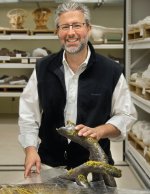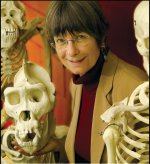2008-09 Series

27 September 2007
Dr. Jill Sundie, University of Houston
“Peacocks, Porsches and Public Displays of Wealth: An Evolutionary Perspective on Consumer Behaviors”
Jill Sundie is an Assistant Professor of Marketing at the C. T. Bauer College of Business at the University of Houston. She received her Ph.D. in Social Psychology from Arizona State University and an M.A. in Economics from the University of Southern California. She studies motivations for consumer behavior and decision-making from an evolutionary psychological perspective, with particular focus in the areas of social influence, conspicuous consumption and negative consumption emotions such as envy and schadenfreude. Her work has been published in the Journal of Personality & Social Psychology and other outlets. Prior to completing her doctorate, she worked for several years at an investment management firm, The Vanguard Group.
Dr. Jill Sundie, University of Houston
“Peacocks, Porsches and Public Displays of Wealth: An Evolutionary Perspective on Consumer Behaviors”
Jill Sundie is an Assistant Professor of Marketing at the C. T. Bauer College of Business at the University of Houston. She received her Ph.D. in Social Psychology from Arizona State University and an M.A. in Economics from the University of Southern California. She studies motivations for consumer behavior and decision-making from an evolutionary psychological perspective, with particular focus in the areas of social influence, conspicuous consumption and negative consumption emotions such as envy and schadenfreude. Her work has been published in the Journal of Personality & Social Psychology and other outlets. Prior to completing her doctorate, she worked for several years at an investment management firm, The Vanguard Group.

15 January 2008
Dr. Edward Larson, University of Georgia
“From Dayton to Dover: A Brief History of the Evolution Teaching Controversy”
Edward J. Larson is the Russell Professor of History and Talmadge Professor of Law at the University of Georgia and recipient of the 1998 Pulitzer Prize in History. Before accepting a teaching position at Georgia in 1987, he served as Associate Counsel for the U.S. House of Representatives Committee on Education and Labor (1983-89) and as an attorney with a major Seattle law firm (1979-83). The author of five books and over eighty published articles, Larson writes mostly about issues of science, medicine and law from an historical perspective. His books include: Evolution: The Remarkable History of a Scientific Theory (2004); Evolution’s Workshop: God and Science in the Galapagos Islands (2001), Sex, Race, and Science: Eugenics in the Deep South (1995), Trial and Error: The American Controversy Over Creation and Evolution (1985, 1989, and 2002 updated editions) and the Pulitzer Prize winning Summer for the Gods: The Scopes Trial and America’s Continuing Debate Over Science and Religion (1997). His articles have appeared in such varied journals as Nature, Atlantic Monthly, Science, Scientific American, The Nation, Oxford American, Wall Street Journal, Virginia Law Review, and British Journal for the History of Science. He is interviewed frequently for broadcast and print media, including multiple appearances on PBS, the History Channel, Court TV, C-SPAN and CNN.
Dr. Edward Larson, University of Georgia
“From Dayton to Dover: A Brief History of the Evolution Teaching Controversy”
Edward J. Larson is the Russell Professor of History and Talmadge Professor of Law at the University of Georgia and recipient of the 1998 Pulitzer Prize in History. Before accepting a teaching position at Georgia in 1987, he served as Associate Counsel for the U.S. House of Representatives Committee on Education and Labor (1983-89) and as an attorney with a major Seattle law firm (1979-83). The author of five books and over eighty published articles, Larson writes mostly about issues of science, medicine and law from an historical perspective. His books include: Evolution: The Remarkable History of a Scientific Theory (2004); Evolution’s Workshop: God and Science in the Galapagos Islands (2001), Sex, Race, and Science: Eugenics in the Deep South (1995), Trial and Error: The American Controversy Over Creation and Evolution (1985, 1989, and 2002 updated editions) and the Pulitzer Prize winning Summer for the Gods: The Scopes Trial and America’s Continuing Debate Over Science and Religion (1997). His articles have appeared in such varied journals as Nature, Atlantic Monthly, Science, Scientific American, The Nation, Oxford American, Wall Street Journal, Virginia Law Review, and British Journal for the History of Science. He is interviewed frequently for broadcast and print media, including multiple appearances on PBS, the History Channel, Court TV, C-SPAN and CNN.

21 February 2008
Dr. Neil Shubin, University of Chicago and Field Museum
“Finding Your Inner Fish: New Discoveries on the Shift From Fish to Land-Living Animal”
Dr. Neil Shubin, Ph.D., is provost of The Field Museum of Natural History in Chicago as well as a professor of anatomy at the University of Chicago, where he also serves as associate dean. Dr. Shubin’s research sits at the interface of expeditionary paleontology, developmental genetics and genomics; the goal of which is to gain insight into the evolutionary origin of anatomical features of animals. In 2004, Shubin and his colleagues Ted Daeschler and Farish A. Jenkins Jr. lead the team that discovered Tiktaalik roseae. Better known as the “the fish with hands”, Tiktaalik is a 375 million year old fossil fish that sheds light on a pivotal point in the history of life on Earth; when the very first fish ventured out onto land. This groundbreaking discovery made front-page news in several media outlets including the New York Times and the Chicago Tribune, and was published in the journal Nature. Shubin was named ABC News’ “Person of the Week” in April 2006 and continues to gain national recognition for revealing the missing link between ancient sea creatures and the first creatures to walk on land.
In January, Random House Publishing released Your Inner Fish: A Journey into the 3.5-Billion-Years of the Human Body. In Your Inner Fish Shubin recounts this discovery and explores evolutionary history, tracing the origins of the human body back millions of years, long before the first creatures walked the earth.
Dr. Neil Shubin, University of Chicago and Field Museum
“Finding Your Inner Fish: New Discoveries on the Shift From Fish to Land-Living Animal”
Dr. Neil Shubin, Ph.D., is provost of The Field Museum of Natural History in Chicago as well as a professor of anatomy at the University of Chicago, where he also serves as associate dean. Dr. Shubin’s research sits at the interface of expeditionary paleontology, developmental genetics and genomics; the goal of which is to gain insight into the evolutionary origin of anatomical features of animals. In 2004, Shubin and his colleagues Ted Daeschler and Farish A. Jenkins Jr. lead the team that discovered Tiktaalik roseae. Better known as the “the fish with hands”, Tiktaalik is a 375 million year old fossil fish that sheds light on a pivotal point in the history of life on Earth; when the very first fish ventured out onto land. This groundbreaking discovery made front-page news in several media outlets including the New York Times and the Chicago Tribune, and was published in the journal Nature. Shubin was named ABC News’ “Person of the Week” in April 2006 and continues to gain national recognition for revealing the missing link between ancient sea creatures and the first creatures to walk on land.
In January, Random House Publishing released Your Inner Fish: A Journey into the 3.5-Billion-Years of the Human Body. In Your Inner Fish Shubin recounts this discovery and explores evolutionary history, tracing the origins of the human body back millions of years, long before the first creatures walked the earth.

13 March 2008
Dr. Dean Falk, Florida State University
“What’s Up With Hobbits (Homo floresiensis)?”
Dr. Dean Falk is the Hale G. Smith Professor and Chair of the Department of Anthropology at the Florida State University. Her research focuses on the evolution of the brain and cognition in higher primates, including humans. She and her colleagues recently undertook a comparative study of endocasts from the skulls of microcephalic and normal humans. Her interest in microcephalics was sparked initially by research on the Hobbit (Homo floresiensis, a tiny hominin from the Indonesian island of Flores whose remains were described at the end of 2004). Dr. Falk visited Liang Bua, the cave on Flores where the Hobbit was discovered in July, 2007. She has become well known as a result of her association with the Hobbit, but before that she was probably best known for her book, Braindance (2004, University Press of Florida), originally published in 1992 and thoroughly updated and revised in 2004. In Braindance she weaves evolution, physiology, and social behavior together to tell the tale of human brain evolution, including future projections of cognitive potential. She is currently finishing up Finding Our Tongues: The Role of Mothers and Infants in the Evolution of Language, Music and Art (Basic Books) based on her ‘putting the baby down’ hypothesis, which associates the evolution of infant-directed speech with selection for bipedalism. Dr. Falk’s talk about the lessons to be learned from Homo floresiensis is being sponsored by the Department of Anthropology.
Dr. Dean Falk, Florida State University
“What’s Up With Hobbits (Homo floresiensis)?”
Dr. Dean Falk is the Hale G. Smith Professor and Chair of the Department of Anthropology at the Florida State University. Her research focuses on the evolution of the brain and cognition in higher primates, including humans. She and her colleagues recently undertook a comparative study of endocasts from the skulls of microcephalic and normal humans. Her interest in microcephalics was sparked initially by research on the Hobbit (Homo floresiensis, a tiny hominin from the Indonesian island of Flores whose remains were described at the end of 2004). Dr. Falk visited Liang Bua, the cave on Flores where the Hobbit was discovered in July, 2007. She has become well known as a result of her association with the Hobbit, but before that she was probably best known for her book, Braindance (2004, University Press of Florida), originally published in 1992 and thoroughly updated and revised in 2004. In Braindance she weaves evolution, physiology, and social behavior together to tell the tale of human brain evolution, including future projections of cognitive potential. She is currently finishing up Finding Our Tongues: The Role of Mothers and Infants in the Evolution of Language, Music and Art (Basic Books) based on her ‘putting the baby down’ hypothesis, which associates the evolution of infant-directed speech with selection for bipedalism. Dr. Falk’s talk about the lessons to be learned from Homo floresiensis is being sponsored by the Department of Anthropology.

10 April 2008
Dr. Colin Allen, Indiana University
“Smart Animals, Dumb Humans? How Should We Understand the Evolutionary Continuity of Mind?”
Colin Allen is Professor of History and Philosophy of Science at Indiana University, where also serves as a core faculty member of the Center for the Integrative Study of Animal Behavior. He earned his Ph.D. in philosophy from the University of California – Los Angeles, where he wrote a dissertation on philosophical issues in cognitive ethology, particularly the attribution of mental states to nonhuman animals. This topic has continued to be a central concern of Prof. Allen’s research. His most recent work concerns behavioral evolution, consciousness and cognition in non-human animals, and methodological issues in the study of animal behavior. He is the author (with Mark Bekoff) of Species of Mind: The Philosophy and Biology of Cognitive Ethology, and he has coedited four anthologies of original essays in the philosophy of biology. He will serve as president in 2008-2009 of the Society for Philosophy and Psychology.
Dr. Colin Allen, Indiana University
“Smart Animals, Dumb Humans? How Should We Understand the Evolutionary Continuity of Mind?”
Colin Allen is Professor of History and Philosophy of Science at Indiana University, where also serves as a core faculty member of the Center for the Integrative Study of Animal Behavior. He earned his Ph.D. in philosophy from the University of California – Los Angeles, where he wrote a dissertation on philosophical issues in cognitive ethology, particularly the attribution of mental states to nonhuman animals. This topic has continued to be a central concern of Prof. Allen’s research. His most recent work concerns behavioral evolution, consciousness and cognition in non-human animals, and methodological issues in the study of animal behavior. He is the author (with Mark Bekoff) of Species of Mind: The Philosophy and Biology of Cognitive Ethology, and he has coedited four anthologies of original essays in the philosophy of biology. He will serve as president in 2008-2009 of the Society for Philosophy and Psychology.

24 April 2008
Dr. Mark Farmer, University of Georgia
“Malaria: The Killer Plant”
Mark Farmer, Professor of Cellular Biology at the University of Georgia, specializes in the cell biology and evolutionary history of protists (protozoa and algae). Protists are typically single celled organisms that do not form tissues with specialized functions. Most are free living but a few are notorious parasites of humans and animals. The evolutionary chain of events that gave rise to protists from much simpler bacteria remains one of the great unsolved mysteries in biology. As Past-President of the International Society for Evolutionary Protistology Dr. Farmer has studied those organisms that are thought to represent some of the earliest ancestors from which animals, plants, and fungi are descended. While serving as a program officer for the National Science Foundation he became interested in the growing politicization of science policy in the U.S. and in the growth of the Intelligent Design movement. Many examples of so-called “Irreducible Complexity” are readily explained using examples from protistan biology and Dr. Farmer draws on these to explain basic cellular processes that are often not well understood, even by many fellow scientists. A self described “Scientist of Faith” he also feels that there should be no inherent conflict between an acceptance of basic evolutionary theory and one’s personal beliefs. Dr. Farmer is an active spokesman for scientific integrity in America’s public schools and regularly engages in public debates with those who advocate the introduction of religious concepts into the science curriculum.
Dr. Mark Farmer, University of Georgia
“Malaria: The Killer Plant”
Mark Farmer, Professor of Cellular Biology at the University of Georgia, specializes in the cell biology and evolutionary history of protists (protozoa and algae). Protists are typically single celled organisms that do not form tissues with specialized functions. Most are free living but a few are notorious parasites of humans and animals. The evolutionary chain of events that gave rise to protists from much simpler bacteria remains one of the great unsolved mysteries in biology. As Past-President of the International Society for Evolutionary Protistology Dr. Farmer has studied those organisms that are thought to represent some of the earliest ancestors from which animals, plants, and fungi are descended. While serving as a program officer for the National Science Foundation he became interested in the growing politicization of science policy in the U.S. and in the growth of the Intelligent Design movement. Many examples of so-called “Irreducible Complexity” are readily explained using examples from protistan biology and Dr. Farmer draws on these to explain basic cellular processes that are often not well understood, even by many fellow scientists. A self described “Scientist of Faith” he also feels that there should be no inherent conflict between an acceptance of basic evolutionary theory and one’s personal beliefs. Dr. Farmer is an active spokesman for scientific integrity in America’s public schools and regularly engages in public debates with those who advocate the introduction of religious concepts into the science curriculum.
